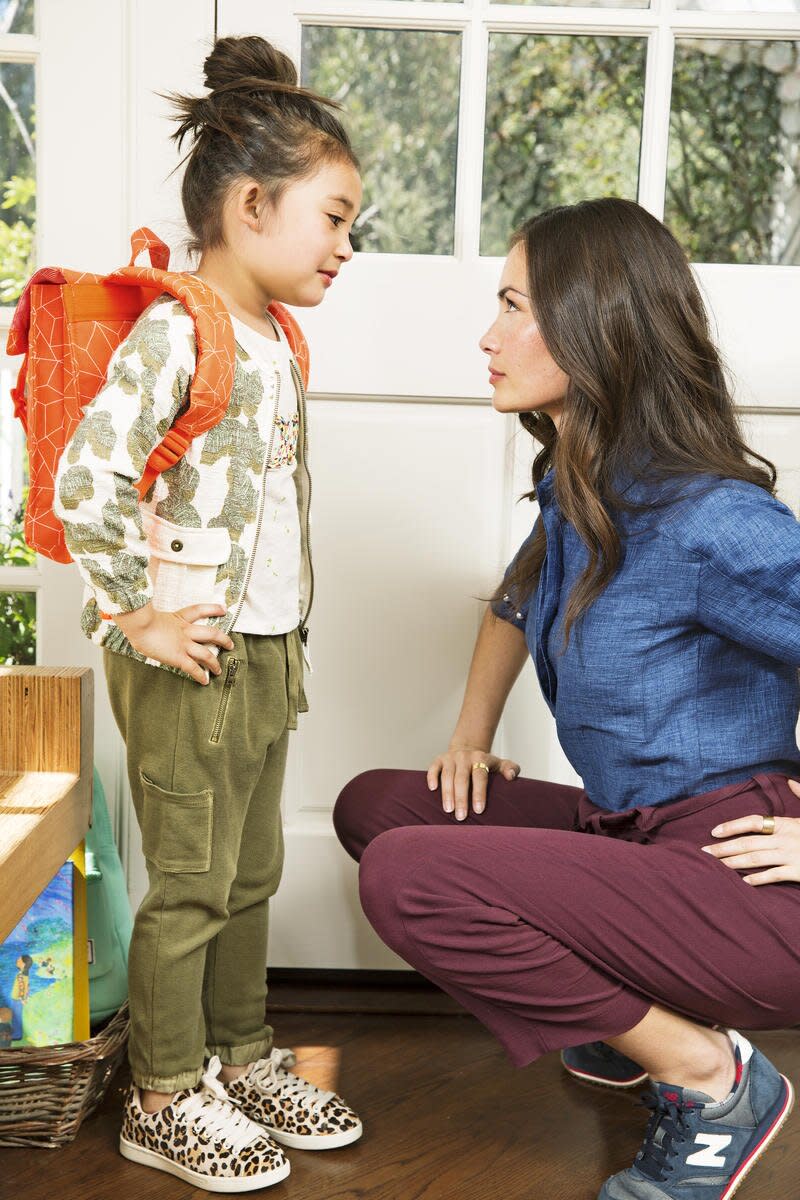7 One-Liners to Use When Disciplining Kids
As parents, we all have a bag of tricks, and the best tool in mine right now isn't bribery or some sophisticated parenting philosophy, it's the one-liner. In an effort to validate our daughters' feelings and be empathetic, my husband and I used to talk too much. We'd explain, coax, and try to reason with Penny, 7, and Gwen, 4, but those extended conversations only led to power struggles and exhausted everyone involved.
"There's a limit to how much verbiage developing brains can process," explains Joan Ershler, Ph.D., director of the Waisman Early Childhood Program at the University of Wisconsin. "What you mean to say can get lost in a sea of words, so short and simple works best."

Cheyenne Ellis
We curated a handful of brief phrases to replace a ton of blather, and it has wildly improved our interactions with our kids. Maybe these one-liners from our house, other parents, and experts will work magic for you, too.
"I Know; It's Hard."
This line, paired with a sincere frowny face and a shoulder pat, can go a long way toward soothing a child having big emotions, because it acknowledges that, yeah, it does suck when your sock is on "wrong." Validation can help your child move through difficult feelings instead of getting stuck, says Dr. Ershler.
"Walk, Please!"
Giving a small child a positive direction can end a debate faster than reasoning ever could. "When you say 'Don't run!' or 'Quit arguing,' not only does your child have to stop the action, they also have to search their repertoire of responses for what to do next," says Dr. Ershler. But "Walk, please!" or "Say 'Okay, Mommy!' " simply tells her what to do next.
"Try Again."
This one's a great catchall for many kinds of unwelcome behavior—yelling, grabbing a toy from someone, being rude. Kids can be more cooperative if they feel they have some control over a situation, so saying something like this or "Let's have a redo" gives them a chance to choose to behave differently without piling on the guilt.
"What Did I Say?"
How you say this one is super important because if you're not careful it can sound scoldish. And if your emotions become heightened, so will your child's. But genuinely asking him to tell you what you said is a good way to remind him of what he's supposed to be doing.
"I Love You Too Much to Argue."
My own "keep-it-simple" eureka moment actually came the day I heard these seven words. At drop-off, Gwen's preschool director instantly and kindly shut down a 4-year-old's attempts to bargain with her by responding with this gem. Period. Case closed. Move along, kid—and that's exactly what he did.
"I Can't Understand You When You Use That Voice."
This is a blessed alternative to "Stop whining!" Once your child speaks to you more normally, you can then praise her and explain why she made a good choice, says Dr. Ershler.
"How Do We Ask?"
Getting kids to remember their manners is an ongoing battle, but instead of nagging—which can trigger a rebellious response—help your child remind himself of the rules with a calm question.

